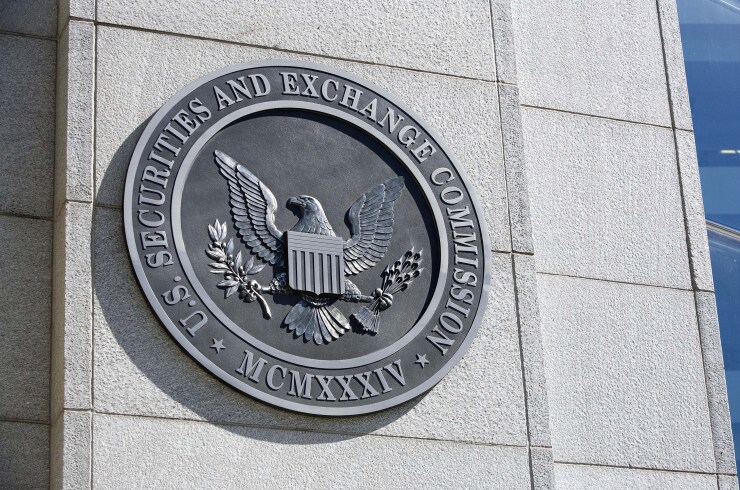The Securities and Exchange Commission recently voted to exempt many smaller public companies from the Sarbanes-Oxley requirement for auditor attestations of their internal controls over financial reporting, but many companies have been able to avoid such audits anyway by incurring debt instead of selling stock, according to a new study by researchers at University of Connecticut.
The study, which appears in the March/April issue of The Accounting Review, published by the American Accounting Association, examined Section 404 of the Sarbanes-Oxley Act of 2002 and an exemption that allows small companies to avoid the requirement. Last month, the SEC voted to exempt smaller public companies with less than $100 million in annual revenue from the requirement for an attestation of their internal control over financial reporting by an outside auditor, but many companies have been finding a way around the expensive requirement for years by taking on more debt. The growing levels of corporate debt have caused concern, especially lately with the economic impact of the coronavirus pandemic.
While extremely low interest rates are typically credited with much of the debt explosion, regulatory factors have also played a part. The new study blames SEC accounting regulations for the unintended effect of encouraging more indebtedness among small companies that have tried to use those rules to their advantage. The exemption increases the likelihood that the small companies qualifying for it will fund growth by incurring debt rather than by selling common stock.
SOX 404 requires corporate managers and their outside auditors to attest to the effectiveness of their internal controls over financial reporting (ICFR). But, as the study notes, SOX 404 “has been especially costly and controversial for smaller firms,” which has led the SEC (and then Congress through the Dodd-Frank Act) to exempt them from the provision’s expensive auditor-attestation requirement. Companies that qualify for this exemption mainly on the basis of the smallness of their public float (the value of company shares held by the public at large), with the maximum initially set by the SEC at $75 million and raised in March of this year to $250 million. Avoiding the expensive auditor-attestation requirement gives companies a strong incentive to keep their public floats below the regulatory threshold.
“The traditional trade-off theory of capital structure views financing choices as a balancing of various costs and benefits of debt versus equity,” wrote the study’s authors, David P. Weber and Yanhua Sunny Yang of the University of Connecticut. “The SOX 404 exemption can affect that balance and the resulting financing choices of firms near the threshold by making additional common equity relatively more costly and additional debt relatively less costly.”
They found that the exemption has done exactly that, a result that’s “consistent with firms’ altering their financing choices to maintain their exemptions and avoid costly regulation.” This choice could come at a high cost for some companies during the current pandemic. “Certainly one potential cost of taking on more debt than would otherwise be optimal is the increased risk of financial stress in the event of a negative economic shock, such as the current coronavirus situation,” said Weber in a statement.
His and Yang’s analysis involved 1,095 small public companies. They discovered strikingly different patterns in raising capital between those slightly above the SOX-mandated threshold (with a public float of $75 million to $100 million) and those slightly below the threshold ($50 million to $75 million). Prior to SOX, both groups were about equally likely to issue common stock as a means of external financing; after SOX the below-threshold firms were on average 19.4 percent less likely to issue common stocks than those above the threshold. As the researchers found, this is a sizable effect considering that common-stock issuance accounted for only 47 percent of the external financing of the two groups combined.
They also did another analysis involving a much smaller number of companies. The researchers focused on 25 companies that issued debt in a given year in the post-SOX era, some of which rose above the $75-million threshold the following year and some of which did not. Among the former group about half issued common stock in addition to taking on debt in their first year after rising above the threshold; in contrast only about 20 percent of the latter group issued stock, with nearly 80 percent continuing to rely exclusively on debt. Though based on a relatively small sample, the difference between groups was statistically significant.
The research also found the propensity to favor debt over equity to be strongest among the companies that have the highest market-to-book ratios, companies “with highly valuable growth options.” Through debt those companies try to remain below the public-float threshold while pursuing opportunities too promising to pass up.
“While it is still too early to have definitive data on this, it is reasonable to conjecture that it may have a potential benefit in taking some pressure off smaller firms to favor debt over equity and shifting it to larger firms that may be better able to absorb the costs of threshold avoidance,” said Weber in a statement. “It should be noted, however, that some leading accounting scholars have argued against expanded exemption, claiming that any cost savings larger companies realize through it will be dwarfed by hazards to investors. Our paper does not speak to this question. The study’s value, we believe, is in alerting regulators to a heretofore unrecognized, though important, effect of SOX 404 and, more generally, of basing regulatory exemptions on equity values.”






